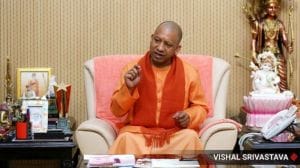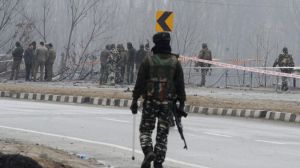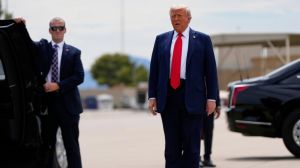The ABC of jehad
It was never really on the cards that Washington would put Pakistan beyond the pale by declaring it a terrorist state. Old friendship and ...

It was never really on the cards that Washington would put Pakistan beyond the pale by declaring it a terrorist state. Old friendship and the hope of encouraging good behaviour preclude drastic action. What is important is that the US state department’s annual report on terrorism takes fairly comprehensive note of Pakistan’s part in furthering international terrorism. Apart from what is well known, drug money, arms bazaars, sanctuary and support to terrorist groups and failing to curb armed groups fighting in India, the report cites the refusal to close down “religious schools which are a conduit for terrorism.” This is significant. Action against such schools is essential to counter terrorism and for peace and stability in Pakistan.
As a first-hand report carried last week in this paper shows these schools train young men for jehad in places like Kashmir and Chechnya. Religion and anti-India propaganda at a medieval Islamic studies centre at Muridke outside Lahore prepare young men for the Lashkar-e-Toiba. Evidently brainwashing here is as important as later weapons training in Muzaffarabad for turning out unthinking but fiercely committed members of the Lashkar which has been responsible for a series of violent incidents in Kashmir.
Living in a self-contained community, the students are presented with no alternative life-styles or pursuits and have no reason to contest the ruling ideology. Although the “vice-chancellor” claims their ideals are higher than the Taliban’s, the school at Muridke is indistinguishable from the seminaries around Peshawar which spawned the Taliban and their oppressive value system. Even as such schools proliferate, Javed Jabbar, adviser to General Pervez Musharraf, claims nothing can be done about them because no law is being breached. This is very shortsighted. Pakistan need not take India’s word for the dangers arising out of the growth of “jehadi schools”.
Self-evidently, armies of half-educated young men itching to go to war are a menace to all modern societies and nations. A swathe of countries from Afghanistan to Algeria has seen that they will as soon turn on their own compatriots and governments as an external adversary, real or imagined. It is in Pakistan’s own interest to regulate the curricula and finances of religious institutions and restrict their numbers. Not an easy task but neglect will make things worse.
The authority of all Pakistani governments has been periodically challenged by religious fundamentalists but neither democratically elected prime ministers nor martial law administrators have tried to bring religious schools within the ambit of the law. Today, the Muridke group manages a little empire of 200 schools around the country and two universities. It is not difficult to imagine whom the products of those institutions will turn on when thwarted in Kashmir and elsewhere. In the long run, a broad-based education and better living standards are what will rescue thousands of young Pakistanis from becoming cannon fodder in so-called jehads. If many more public schools were available, children of poor families would not go to religious schools. If they had hope in the future, they would not look to the past for inspiration.
Photos





- 01
- 02
- 03
- 04
- 05


























